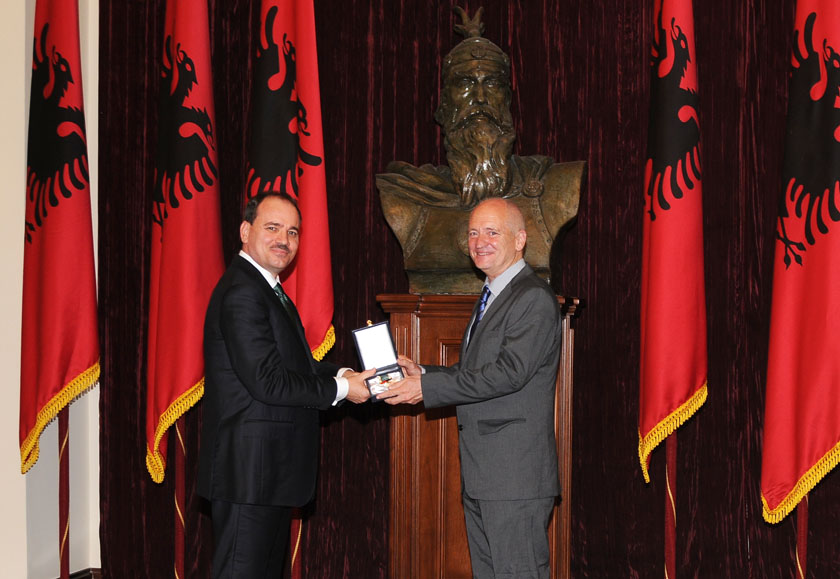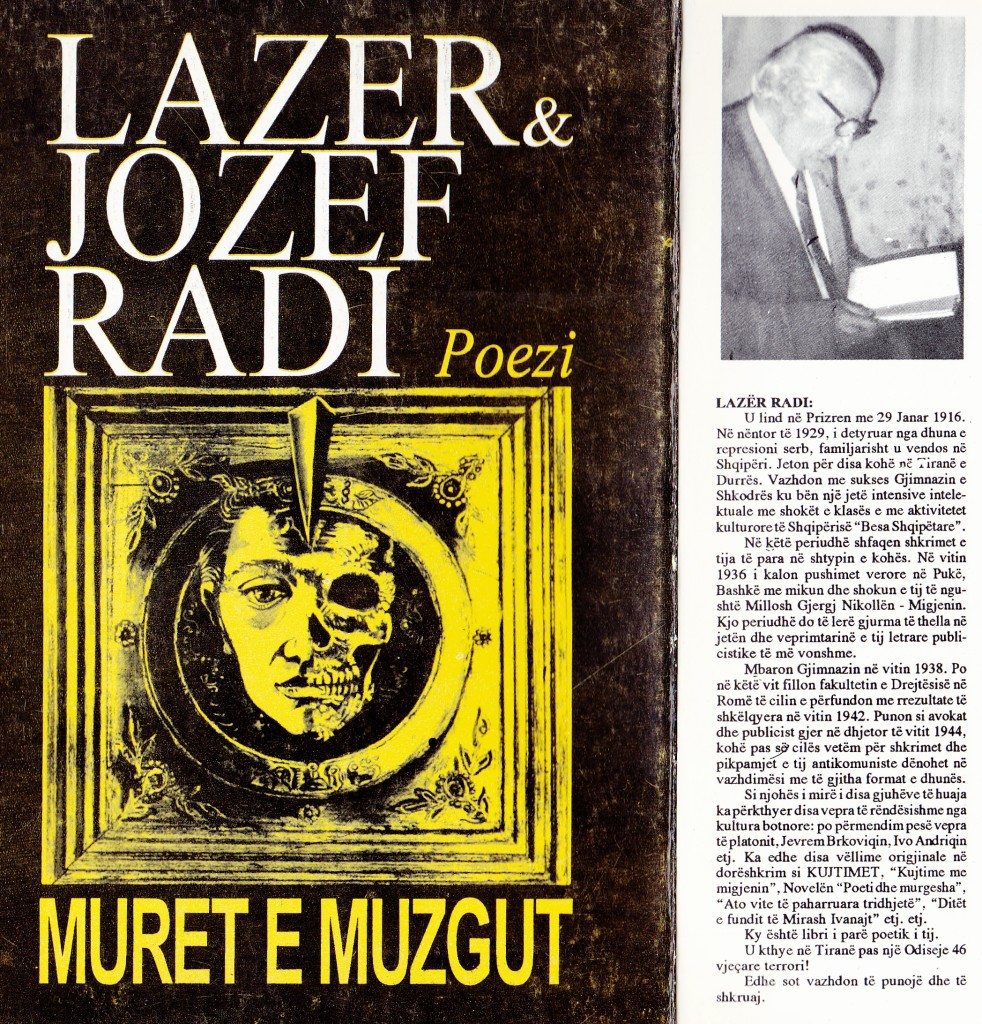
Robert Elsie: the Medal of Gratitude
In Tirana on 15 May 2013,
the President of Albania, Bujar Nishani,
awarded the Medal of Gratitude
to the distinguished Albanologist,
Robert Elsie, with this citation:
“One of the most distinguished Albanologists,
with a broad and profound body of work who,
in passionate and professional devotion for over thirty years,
has made a valued contribution
to the international promotion
of Albanian culture, language, literature and history.”

Muret e muzgut – (The Walls of Twilight) –
Robert Elsie
World Literature Today June 22, 1994
Albania may be lacking in many things nowadays, but it is not lacking in poets. The Albanians as a people, both in Albania and in Kosovo and western Macedonia, have an almost mystical attachment to their language and to their verse. Few people there may have the desire or patience to read local novels, but it is no rarity to hear of impoverished factory workers or simple farm laborers, who live on literally nothing but bread and water, spending the remains of their exiguous wages on a volume of verse. It is a country in which an intellectual, ravaged by half a century of prison and internment, can still find the peace of mind to devote himself to the pleasures of verse and the energy to publish a volume of poetry after such an unspeakable ordeal.
Lazër Radi, who was born in Prizren (Kosova) in 1916, and raised in Shkoder, and who finished his legal studies in Rome during World War II, spent forty-six years of his life in Albanian prisons and internment camps, and survived. He was arrested for political reasons in November 1944, the very month of the said “liberation” and was released only after the fall of the dictatorship. In his first volume of published verse, “Muret e Muzgut” (The Walls of Twilight), Radi presents a pensive cycle of fifty-four poems composed from November 1945 to February 1991, many of which were preserved for years in a plastic container hidden in a field underground verse in the finest sense of the word. They are poignant poetic reflections imbued with anguish, suffering, and hope.
“The Walls of Twilight” is a curious collection in some ways. It is, in fact, two volumes in one, for it contains the poetry of both father and son.
Jozef Radi was born in January 1957, and spent virtually all his life trudging along with his family from one squalid internment camp to the next. Under Enver Hoxha, the political arrest of an individual meant, as a matter of course, the internment and/or persecution of his entire family, right down to the second cousin once removed. Jozef Radi was thus born a slave in a so-called classless Society with nothing but his language and dreams to his name. The seventy-eight poems here by Jozef Radi, encompassed in three cycles, stand on their own merit in this collection and offer sufficient proof of the engaging poetic talent of a writer no longer in the shadow of his more illustrious father.
Lazër and Jozef Radi are but two names from a whole new generation of poets and writers now giving birth to another chapter of Albanian literature that of the aftermath.
Robert Elsie Olzheim/Eifel, Germany
http://www.thefreelibrary.com/ World Literature Today